Posted: June 30, 2015 | Categories:
Home Buying 101
By Highland Homes
 When it comes to getting a loan to purchase a home in Florida, some mortgage terms can overwhelm those of us without an advanced degree in finance. One such confusing term and a question we frequently hear is, “What is PMI?"
When it comes to getting a loan to purchase a home in Florida, some mortgage terms can overwhelm those of us without an advanced degree in finance. One such confusing term and a question we frequently hear is, “What is PMI?"
Simply put, it is insurance that protects the lenders against the borrower (you) from defaulting on the mortgage. There are two different mortgage insurance acronyms you may hear:
PMI is the acronym for Private Mortgage Insurance; and
MIP is the acronym for Mortgage Insurance Premium.
Ricky Peacock, a mortgage broker with Home Solution Lenders, tells us, “There are four popular loan programs, each having their own terminology to describe mortgage insurance. When required, mortgage insurance is on a monthly basis to the lender as part of the mortgage payment. In addition, government loan programs may collect a one-time upfront fee known as Upfront Mortgage Insurance Premium (MIP)."
Mortgage insurance isn’t always required, but when it is, the insurance premium will be escrowed as part of your monthly mortgage payment and paid out to the insurance servicer.
Which may bring us to your next question, "What is escrow?" When you close on your mortgage, your lender will open an escrow account. Part of the monthly mortgage payment you make will be deposited in this account to cover your property taxes, homeowners insurance, and MIP, if required. Then, your lender pays these bills on your behalf out of the escrow account. This ensures your property-related bills are paid on time and in full, without you having to worry about or budget for these payments separately. When you are qualifying for your new home mortgage, your lender should include all projected escrow amounts in the monthly payment they quote you, so you understand your total monthly mortgage cost.
Now, let’s talk about different loan programs and their Mortgage Insurance requirements.
FHA
The Federal Housing Administration (FHA) is an insurer of mortgages made by private banks. Loans that are insured by the FHA are typically referred to as FHA loans and require mortgage insurance for the life of the loan when borrowers put less than 20 percent down.
According to Ricky, “FHA charges monthly MIP; the amount varies depending on your down payment. There is also a one-time upfront premium of 1.75 percent of the total mortgage loan amount."
USDA
USDA loans are guaranteed by the United States Department of Agriculture and serviced by private lenders who participate in the program. Their Guaranteed loan program offers 100 percent financing to qualified buyers and began in 1991 in an effort to boost homeownership rates in rural areas. USDA charges an upfront guarantee fee of 2 percent, along with an “annual fee" for the life of the mortgage.
According to Ricky, “The USDA annual fee is paid monthly and basically is the same as mortgage insurance."
USDA monthly and upfront fees are required regardless of down payment. However, the monthly-paid annual fee rate is much lower than FHA mortgage insurance, which makes USDA a great loan program for those who qualify in eligible USDA areas.
VA Loans
The Department of Veterans Affairs does not itself loan out money, but it does insure loans made by private lenders. These loans are available to those who have served our country: Veterans, active-duty military personnel, National Guard members/Reservists and some surviving spouses.
Ricky tells us, “VA loans have no monthly mortgage insurance. They do typically require a one-time upfront funding fee, which is based on several factors such as loan amount, first time or subsequent use of this VA benefit, or can be exempted due to disability."
For those who qualify for VA mortgage financing, this program offers wonderful benefits to our nation’s military heroes, with no down payment required and no monthly mortgage insurance.
Conventional Loans
A conventional loan is one that is funded by the financial institution and not guaranteed by the federal government. Therefore, lenders require private mortgage insurance to protect themselves when less than a 20 percent down payment is made.
Ricky says, “There are two main types of PMI available for conventional loans with less than 20 percent down payment made; monthly PMI and lender paid. Monthly PMI is collected until the loan to value reaches 78 percent, meaning the remaining loan amount is 78 percent of the home’s value. The lender paid (LPMI) is a one-time lump sum payment of the PMI; the borrower has no monthly payment but interest rates are generally higher."
Now that you understand a little bit more about PMI, you may be wondering what it means for you! Your first step is to determine your purchase power and what mortgage program suits your financial situation, and Highland Homes works with a team of lender partners who can help you determine this as well as answer your PMI and finance-related questions.
Thank you to Ricky Peacock of Home Solution Lenders for contributing to this article and you can find a full list of our lender partners here.
Highland Homes builds quality new homes in Florida, priced for your budget and designed for your life. For a personalized consultation and to learn more about loan programs available to you give us a call at 863-797-4999 or browse the Highland Homes website.
Please note, the information contained in this blog is provided as a courtesy and should not be solely relied upon for home buying advice or information. The information provided in this blog was accurate at the time of publication but has not been verified since. Please consult with your financial, tax, legal and/or real estate professional for more details.
Tags:
Home buying 101
Mortgage Insurance Premium
Private Mortgage Insurance
PMI and MIP
Mortgage



 Equal Housing
Equal Housing